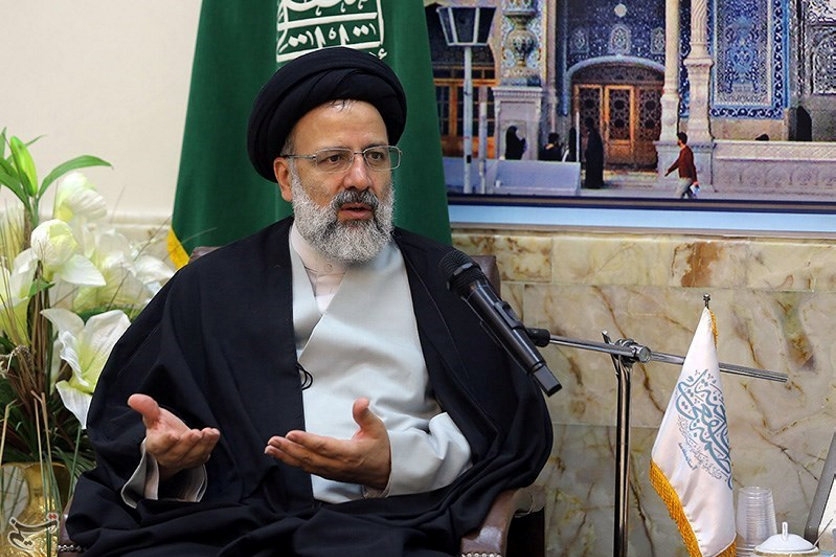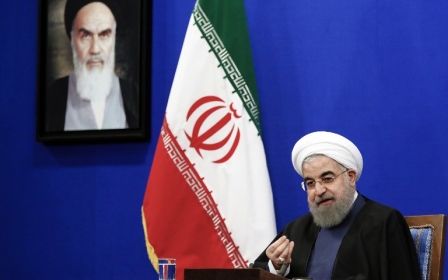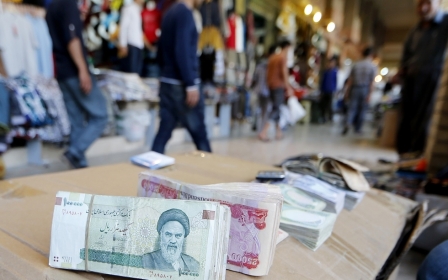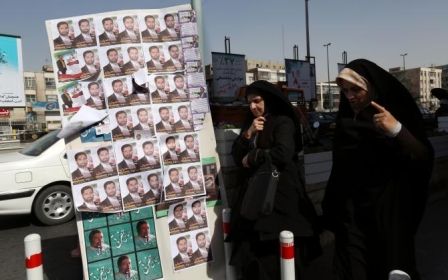Iran election: More than 100 register as presidential hopefuls

Candidates began registering on Tuesday for Iran's May presidential election, with the clerical establishment hoping for a high turnout to shore up its legitimacy amid widespread instability in the Middle East.
The Islamic Republic regards the election in part as a show of defiance against renewed US pressure under President Donald Trump, particularly after his missile attack last week on Syria, Iran's regional ally.
President Hassan Rouhani, who engineered Iran's 2015 nuclear deal with world powers that secured the removal of international financial and trade sanctions against Tehran, is expected to seek re-election but faces a stiff challenge from hardline conservative Ebrahim Raisi.
Discontent has risen over steep rises in consumer prices and stubbornly high unemployment, with many Iranians struggling to make ends meet, despite the lifting of international sanctions that Rouhani had said would revive the economy.
Registration for the election will last five days after which entrants will be screened for their political and Islamic qualifications by the Guardian Council, a hardline vetting body.
More than 100 candidates have registered so far for the vote. The Guardian Council has stopped hundreds of candidates from participating in past elections.
Rouhani won by a landslide in 2013, standing on a platform of ending the Islamic Republic's international isolation.
He sidestepped questions at a news conference on Monday as to whether he would seek a second term in what analysts believe will be a tight race with Raisi.
The lifting of sanctions in January 2016 provided a short-term boost to the economy as inflation dropped to single digits and real GDP grew by as much as 7.4 percent. But for sustained recovery, structural reforms will be needed to liberalise the economy - something Rouhani could not deliver in his first term.
Wary foreign investors
Recovery will also require significant foreign investment but that has been slow to resume in part because many investors have hesitated for fear of incurring penalties from lingering U.S. sanctions.
Unemployment stood at 12.4 percent in the last fiscal year, according to the Statistical Centre of Iran, up 1.4 percent from the previous year. About 3.2 million Iranians are jobless out of a total population of 80 million.
Rouhani retains considerable electoral strength, however, especially among Iran's large bloc of young, urban voters attracted to his vision of greater social freedoms and an end to Islamic clerical interference in their personal lives.
Honouring a 2013 campaign promise, Rouhani unveiled a "Bill of Rights" last year to safeguard freedom of speech, improve access to the internet and protect citizens' privacy.
However, critics wonder whether the bill could be implemented, given likely resistance within a hardline judiciary that lies beyond his direct authority.
Moderates and some influential leading conservatives, including parliament speaker Ali Larijani, have endorsed Rouhani's candidacy, while Raisi emerged as the main conservative challenger on Sunday.
Analysts say Raisi, thanks to the support he enjoys from the supreme leader Ayatollah Ali Khamenei, could pose a real challenge to Rouhani's bid for a second term.
Among other presidential candidates, former culture minister Mostafa Mirsalim promised to invigorate the economy in a nod to frustration among working- and middle-class Iranians.
Hassan and Hossein Seyed-Hadi, twins in their late 20s, registered their names together, promising to create jobs for the country's burgeoning youth population if elected.
New MEE newsletter: Jerusalem Dispatch
Sign up to get the latest insights and analysis on Israel-Palestine, alongside Turkey Unpacked and other MEE newsletters
Middle East Eye delivers independent and unrivalled coverage and analysis of the Middle East, North Africa and beyond. To learn more about republishing this content and the associated fees, please fill out this form. More about MEE can be found here.




